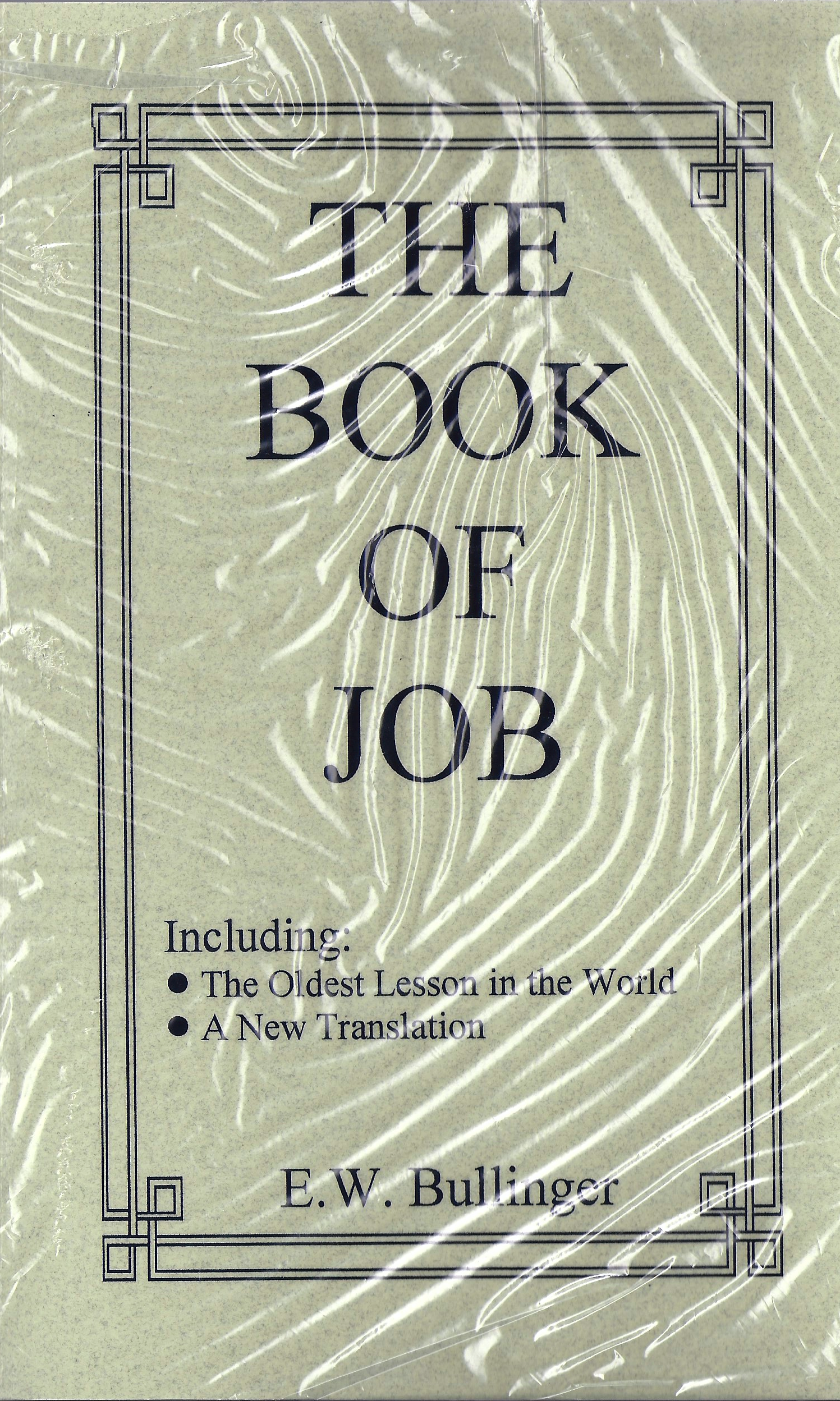Currently we accept orders for domestic delivery only.
If you are located outside the United States and wish to make a purchase, please contact us or mail us at:
Truth For Today, Inc., PO Box 607, West Union, SC 29696
or call Ph. # 864-638-8780
Book of Job (Bullinger)
Book of Job (Bullinger)
By E.W. Bullinger (PB &HB) Also have Book of Job by Charles H. Welch (PB only)
E.W. Bullinger - Book Review by Robert Guenther
This is an excellent commentary on one of the oldest books of the Bible which answers the oldest question, “How shall mortal man be just with God?” Dr. Bullinger attempts to answer this by using his own insights and by the use of a new translation with explanatory notes.
This book is divided into two parts: a commentary using the Hebrew text, and Dr. Bullinger's own translation. Much has been written on the patience of Job and the bad advice from his three friends. However, the real lesson in this book is learning what it takes to have “a broken heart” and “a contrite spirit” before an exalted God.
We are introduced to this man named Job from the land of Uz. He was perfect and upright, one that feared God and turned away from evil. He was blessed with a large family, great wealth, many servants and good health. But then there came a time when God allowed his protective hedge to be dropped from around Job and Satan began to attack him. Soon everything Job had was either lost or destroyed.
At this point we begin to ask the same type of questions that Job’s three friends began to ask. In an attempt to explain why these terrible things were happening, Job’s friends used human reasoning based on what they saw, but God’s ways are secret and hidden. God brings around Elihu to correct Job and his three friends. Job is humbled before God and exalts Him. Then God is able to bless Job by giving him a double portion of all he had before.
The second part of this book is about Dr. Bullinger's new translation. It has six main points that distinguish it from all other translations. It is Metrical, it is based on the literary structure of the book, it includes the Figures of Speech, it is idiomatic, it follows the critical Hebrew text of Dr. Ginsburg's Bible, and lastly, it distinguishes the six different Divine Names and Titles.
In conclusion, Dr. Bullinger's goal was to add to what others have written about the book of Job, not to replace or suggest that his work was far superior to theirs. We believe that this book does give us the true sense and purpose of the book of Job. Also, we should all benefit from the lesson that Job learned, which was that when we get right with God, we have new thoughts of Him, new thought about ourselves, are friends, and all else. This is ‘the end of the Lord’ - the place where God would have us all to be.

